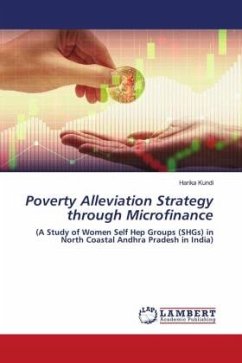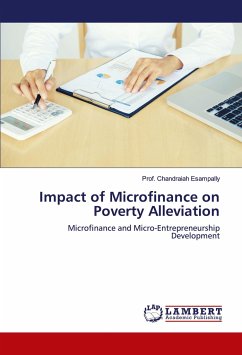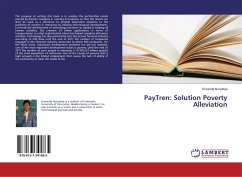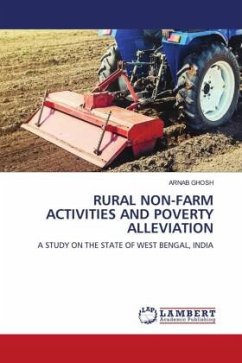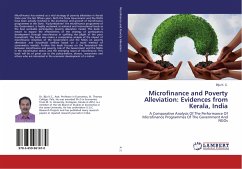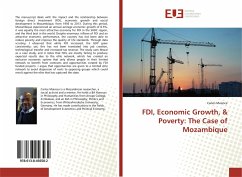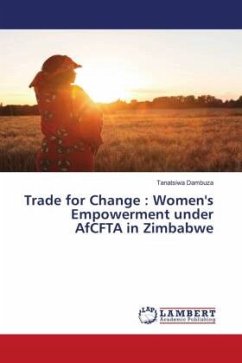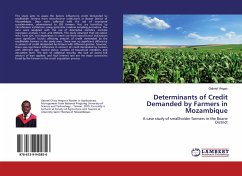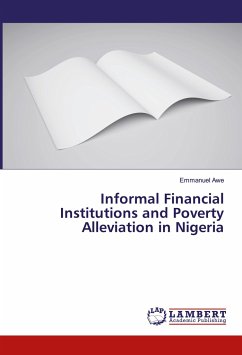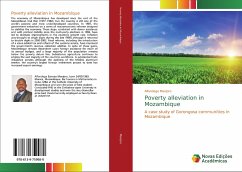
Poverty alleviation in Mozambique
A case study of Gorongosa communities in Mozambique
Versandkostenfrei!
Versandfertig in 6-10 Tagen
47,99 €
inkl. MwSt.

PAYBACK Punkte
24 °P sammeln!
The economy of Mozambique has developed since the end of the Mozambican Civil War (1977-1992), but the country is still one of the world's poorest and most underdeveloped countries. In 1987, the government embarked on a series of macroeconomic reforms designed to stabilize the economy. These steps, combined with donor assistance and with political stability since the multi-party elections in 1994, have led to dramatic improvements in the country's growth rate. Inflation was brought to single digits during the late 1990s although it returned to double digits in 2000-2002. Fiscal reforms, includ...
The economy of Mozambique has developed since the end of the Mozambican Civil War (1977-1992), but the country is still one of the world's poorest and most underdeveloped countries. In 1987, the government embarked on a series of macroeconomic reforms designed to stabilize the economy. These steps, combined with donor assistance and with political stability since the multi-party elections in 1994, have led to dramatic improvements in the country's growth rate. Inflation was brought to single digits during the late 1990s although it returned to double digits in 2000-2002. Fiscal reforms, including the introduction of a value-added tax and reform of the customs service, have improved the government's revenue collection abilities. In spite of these gains, Mozambique remains dependent upon foreign assistance for much of its annual budget, and a large majority of the population remains below the poverty datum line. Subsistence agriculture continues to employ the vast majority of the country's workforce. A substantial trade imbalance persists although the opening of the MOZAL aluminum smelter, the country's largest foreign investment project to date has increased export earnings.



